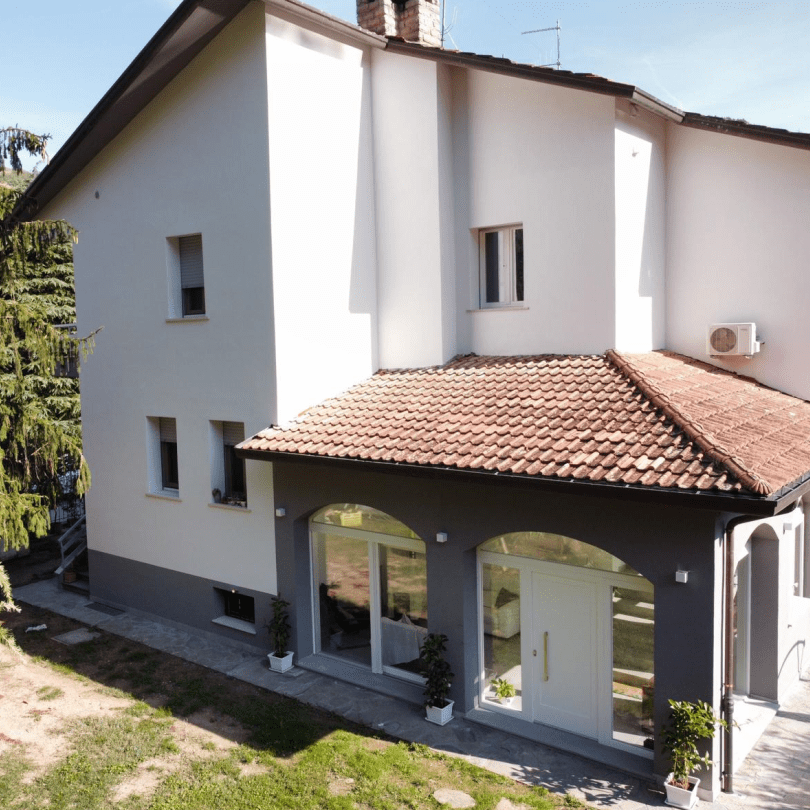A holistic approach to sustainability
In Dovadola in Italy, a large family home was badly in need in renovation. Built in the 1970s, with a 360m2 footprint, it was poorly insulated, and the fuel bills each year amounted to over €9,000. On the A-G energy efficiency class scale, it was ranked G, the worst possible.
The team from Emmeti, part of Purmo Group, stepped in, and saw at once that a holistic solution was needed. The renovation had to comply with energy efficiency standards set out in EU law. Government grants were available for anyone undertaking such work, as long as the finished project saw a minimum of 50% of energy provided by renewable sources, and the energy class scale ranking improved by at least two places.
A combination of actions and products were identified to transform the house. This included installing photo voltaic (PV) solar panels, an air source heat pump, underfloor heating, a new water tank and insulation. The family also chose to replace their condensing boiler, so they could keep the existing radiators as a back-up.
Making the most of sunshine
Solar energy is well suited to the Italian climate. The abundant Mediterranean sunshine means that the PV panels provide electricity to fuel the heat pump. This in turn creates the energy for the underfloor heating, which is stored in the concrete floor and released when needed.
As there is an obvious mismatch between when the sun shines (the middle of the day) and when heating is most needed (mornings and evenings), an intelligent energy management system is needed. This is provided by Febos, a user terminal which sets the temperature of both the water and the heating, and which can maximise the use of the solar power during the critical sunshine hours.
Any excess power produced is sold back to the electricity supplier, but at a much lower cost than any energy which needs to be bought, so maximising usage of the ‘free’ solar power is essential. Febos ensures that as much daytime energy as possible is stored in the floor for slow release.
A bespoke solution for a unique property
The renovation needed a bespoke solution because of the size and age of the property, and the project was complex and lengthy.
The Emmeti team was able to manage the whole process, supplying everything from pipes and manifolds to mixing units and fittings. They were also able to advise on insulation, which turned out to play a major role in the transformation, contributing an estimated 60% - 70% of the eventual savings in energy usage.
Dramatic savings for the householders – and the planet
Every property has its individual needs, and this large 1970s house presented real challenges when compared to a modern apartment. So the eventual transformation in energy usage has been astonishing.
Before the work was done, the household was consuming over 105,000 kWh of gas and 970 kWh of electricity, resulting in annual fuel bills of over €9,000. Now, the house is energy efficient, with 6,157 kWh of solar electricity being generated, and only 1,182 kWh of gas being consumed. This has resulted in annual fuel bills of around €500, just 5.5% of what they were previously. What is more, over 2,500 kWh of electricity is being sold back to the grid each year, and the house now ranks at energy efficiency class A4, the best possible score, and an incredible nine classes above where it was.
Marco Martin, Vice President of Sales for Emmeti said: ‘Many people think that older properties aren’t suitable for a ‘green’ makeover. This house proves that the results can be revolutionary, both in terms of ongoing fuel costs, and by drastically reducing the energy used. There is so much potential out there to really make a difference, both at an individual level and to the future of the planet.’



